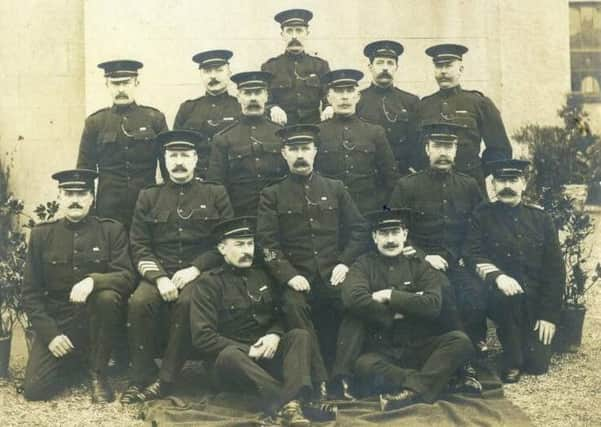Drew Harris urged to honour rebellion-era RIC sacrifice


A service in honour of the dead men has been held in Dublin each year since 2012 but – despite sending a representative – no previous commissioner has attended.
The memorial services have been organised by the Harp Society of the Garda Siochana Retired Members’ Association (GSRMA).
Advertisement
Hide AdAdvertisement
Hide AdDuring the turbulent years following the Easter Rising, hundreds of Royal Irish Constabulary (RIC) and Dublin Metropolitan Police (DMP) officers were brutally murdered, often while attending church with their families.


The Irish government has also been criticised for failing to officially recognise the mens’ sacrifice.
Gerard Lovett of the GSRMA said the Republic’s politicians display a “polite indifference” to the idea of commemorating the officers, and one former government minister gave him the impression it was “too soon” to commemorate the RIC dead.
“We have been niggling away at the politicians since then but we have been met with polite indifference,” he said.
Advertisement
Hide AdAdvertisement
Hide AdMr Lovett said he had been hopeful that Mr Harris, would attend this year’s service.
“He sent his apologies and was represented by Superintendent Laura Mangan. Two or three years ago he did arrive representing the PSNI, but he has not been there as Garda Commissioner.
“We hope to meet him and we hope he will break the mould and attend [in future],” Mr Lovett said.
“All the participants - including the British army causalities who were killed suppressing the rebellion – have been honoured at ceremonies here in Dublin, but not the RIC who were mostly Irishmen and Catholic. There’s a certain irony about that,” Mr Lovett added.
Advertisement
Hide AdAdvertisement
Hide AdThe retired garda officer said the fallen RIC and DMP men have been “airbrushed” from history.
“We met Enda Kenny twice when he was taoiseach, and he made all the right noises. And we met Heather Humphreys when she was minister for culture, but we came away with the impression that she thought it was ‘too soon’. Our main ambition is to have a proper physical memorial erected, like you have in various part of the Republic. Maybe in Dublin Castle near the Garda memorial or somewhere like that,”
Mr Lovett went on to say: “There are a number of memorials to Irishmen who were killed fighting with the British army in World War One, such as the one in Dungarvan in Waterford that lists 1,100 men and women that were killed in World War One.”
A Garda spokesman said: “The Commissioner was invited to attend but unfortunately could not attend due to a prior commitment. An officer represented the Commissioner. The Commissioner has previously interacted with Harp and has invited them to meet him next month.”
Advertisement
Hide AdAdvertisement
Hide AdA spokeswoman for the Republic’s department of culture and heritage said: “Due to other engagements, including attending an international archaeological conference and other engagements in her constituency, Minister [Josepha] Madigan was not available to attend the event.”
According to a spokesman for Leo Varadkar, there is no protocol preventing the taoiseach from attending, but Mr Varadkar had a “prior engagement” on this occasion.
• The first commemoration service in 2012 – held at Glasnevin cemetery – proved controversial and attracted a small dissident republican protest.
Due to stringent insurance and health and safety stipulations, the annual commemoration was switched to Mount Argus church in south Dublin where it has been held for the last six years.
Advertisement
Hide AdAdvertisement
Hide AdOrganiser Gerard Lovett, said the committee had faced criticism from some Irish republicans for paying tribute to a British-backed police force.
In 2013, Mr Lovett told the News Letter that officers serving between 1916 and 1922 faced “horrendous slaughter,” and added: “Their hands weren’t clean at all times, but let’s not condemn the 90% or more who behaved honourably under dreadful conditions.”